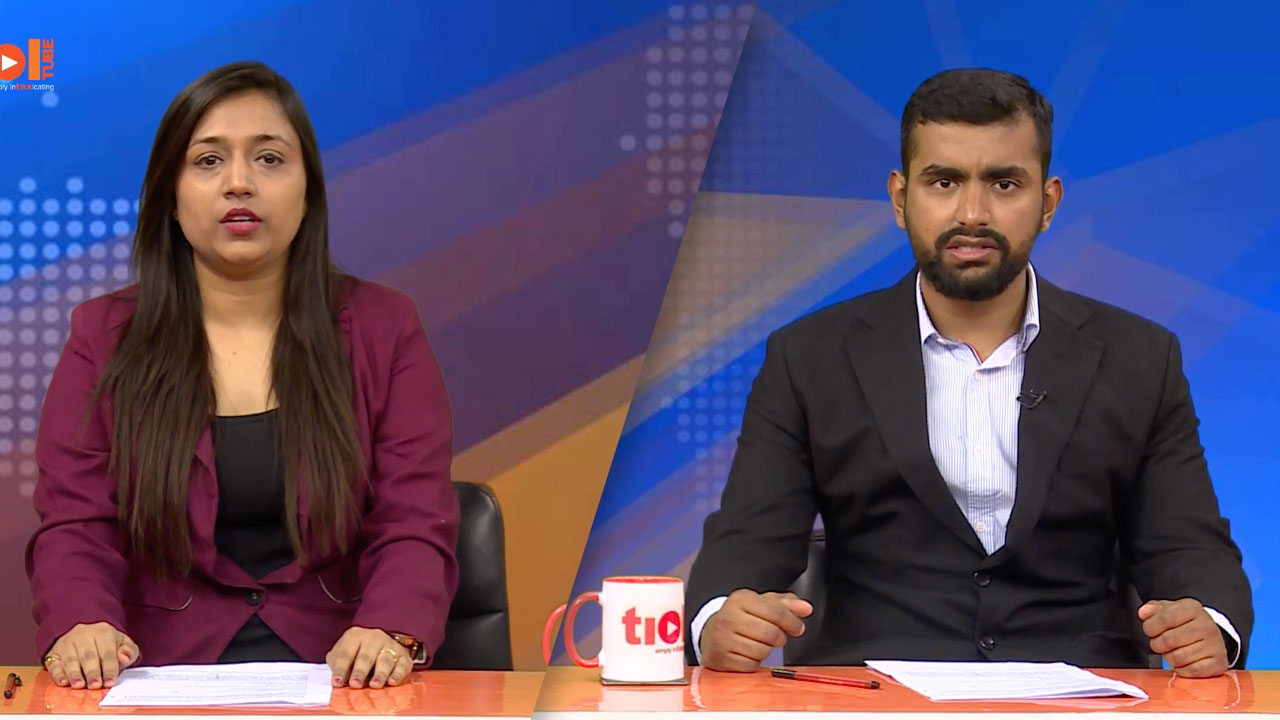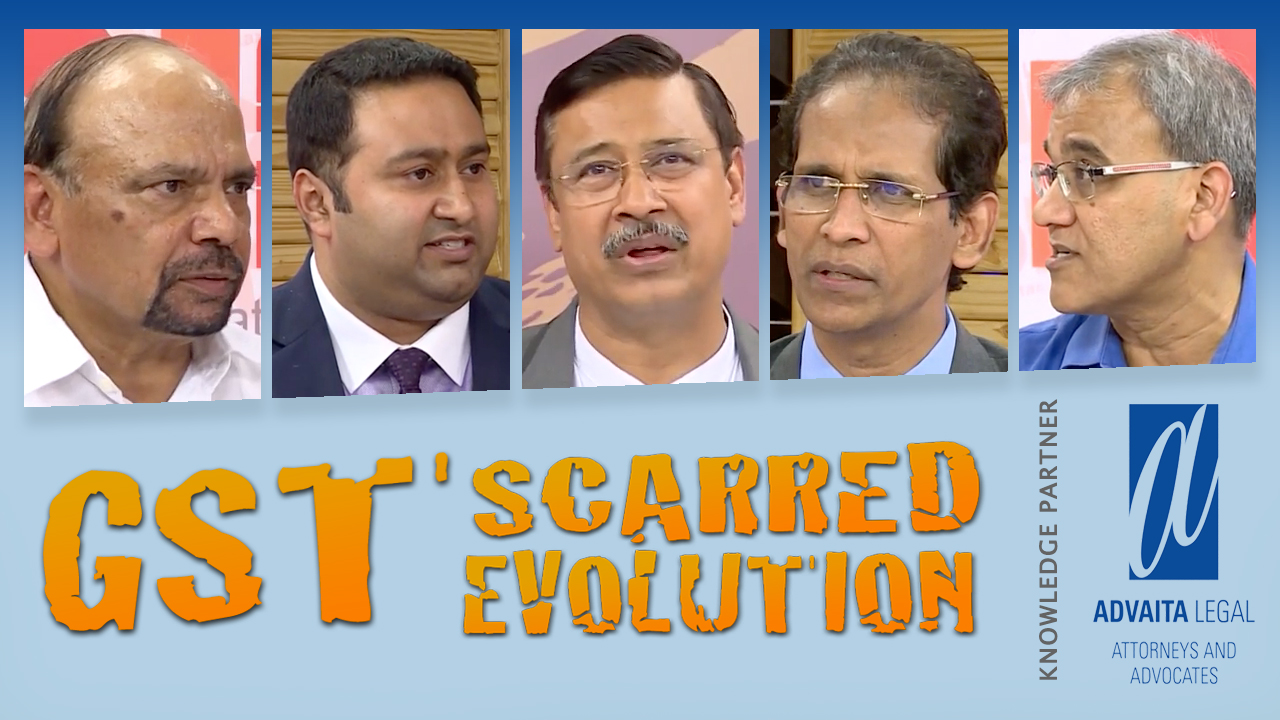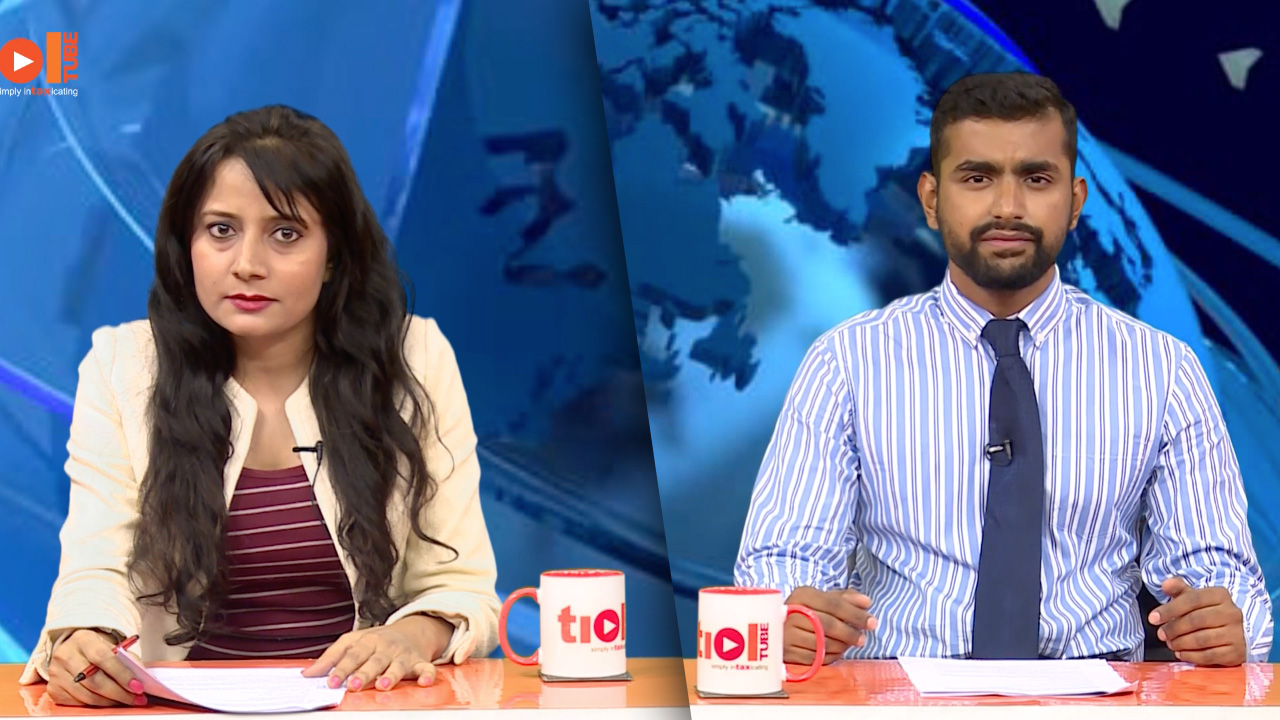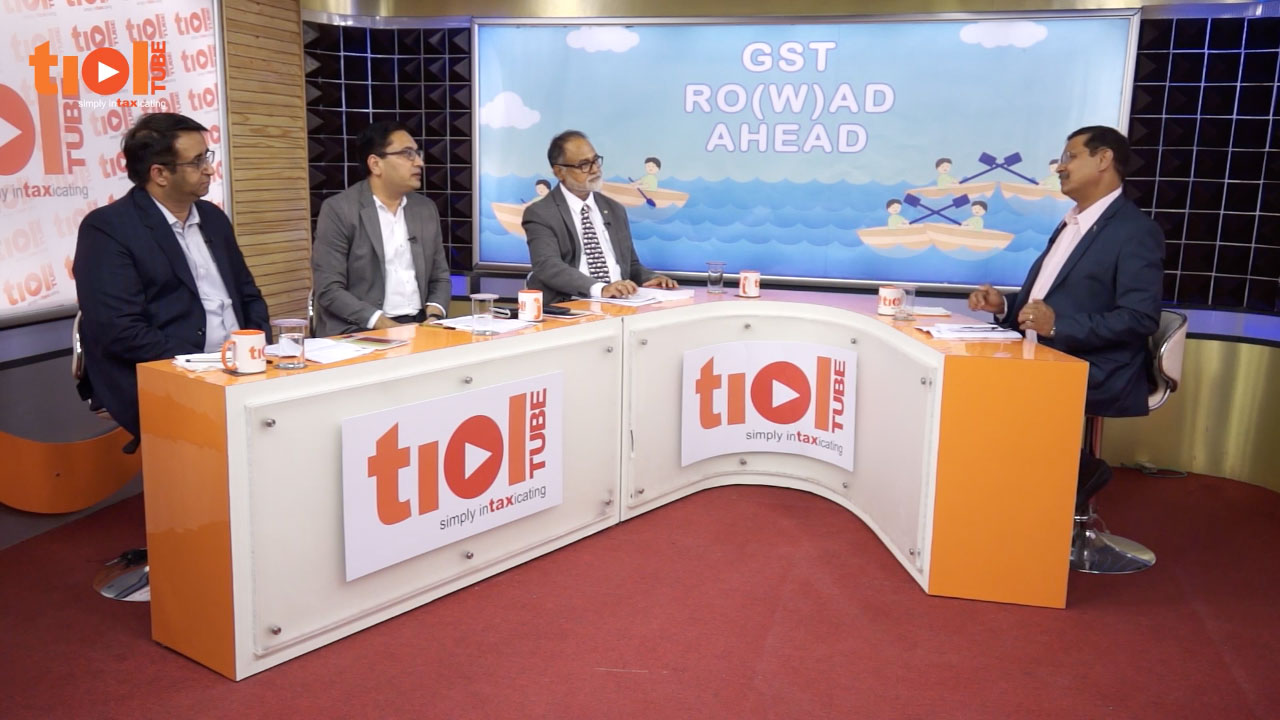SERVICE TAX
2018-TIOL-3330-CESTAT-CHD Satish Kumar Contractor Ltd Vs CCE
ST - The assessee is registered for providing construction service - On audit, the Department noted that the assessee reflected freight inward in the balance sheet for the relevant period, but did not pay service tax under GTA service - Duty demand was raised on grounds that assessee was liable to pay tax under reverse charge mechanism - Interest & penalties were imposed too.
Held: Considering the Tribunal's decision in Dinesh Chandra R. Agarwal Infracon Pvt. Ltd. wherein it was held that whatever service tax would have been paid by the assessee, the same was entitled to avail cenvat credit and the assessee was required to pay less service tax on their final services - Following the same, no mala fide intent can be attributed - Hence extended limitation is not invokable - Hence the demand raised under extended limitation & the penalty be set aside: CESTAT (Para 2,7)
- Assessee's appeal partly allowed: CHANDIGARH CESTAT
2018-TIOL-3329-CESTAT-MUM
Morarjee Textiles Ltd Vs CCE
ST - Appellant receiving services of commission agent and consulting engineer from persons located outside India - Since the appellant as a receiver of taxable services is liable to pay service tax, it is erroneous in not considering him as the service provider for the purpose of utilization of CENVAT credit for payment of service tax under reverse charge mechanism - Specific restriction disallowing such utilisation was brought into the CCR, 2004 w.e.f 01.07.2012 - since the period in dispute is from October 2008 to September 2009 the case of the appellant will be governed by the provisions of un-amended rule 3(4) ibid - impugned order set aside and appeal allowed: CESTAT [para 5.1, 5.2, 6]
- Appeal allowed: MUMBAI CESTAT
2018-TIOL-3328-CESTAT-MUM
CST Vs Upnagar Shikshan Mandal
ST - Respondent owns a building which is normally used for providing education to various students - respondent also provided the ground for conducting marriage function and also let out some portion of the building on rent - alleging that the respondent had not paid tax on Commercial coaching and training service, renting of immovable property service and mandap keeper service, demand issued for extended period for recovery of service tax -Commissioner(A) held that extended period of limitation cannot be invoked for confirmation of the adjudicated demands - Revenue in appeal.
Held: Definitions of the impugned services were highly ambiguous with regard to levy of service tax - in case of Commercial Training and Coaching services the definition was amended by Finance Act, 2010 with retrospective effect from 01.07.2003; in case of renting of immovable property, the same was retrospectively amended from 01.06.2007 and with regard to Mandap keeper service, the explanation to the effect that social function includes "marriages" was appended to the definition clause from 01.06.2007 - in view of the amendment made subsequently in the definition of the disputed taxable services and in view of the divergent views expressed by the judicial forums with regards to levy of service tax on such taxable services, the extended period cannot be invoked - non-payment of tax in such eventuality cannot be attributable to fraud, suppression of facts, collusion etc. on the part of the taxpayer in defrauding government revenue - service tax demand confirmed beyond the normal period of limitation has been rightly set aside by Commissioner(A) - Revenue appeal is, therefore, dismissed: CESTAT [para 6]
- Appeal dismissed: MUMBAI CESTAT
CENTRAL EXCISE
2018-TIOL-3333-CESTAT-MAD
Chettinad Cement Corporation Ltd Vs CGST & CE
CX - The assessee is manufacturer of cement and are availing Cenvat credit for inputs, capital goods and input services and also established a new cement plant in Ariyalur and in connection with erection of plant involving construction of building, installation of plant and fabrication of various support structures and capital goods they had used iron and steel raw materials viz., MS Angles, Channels - The department was of the view that assessee is not eligible for credit taken on cement and steel as they do not fall under definition of inputs or capital goods - Assessee has relied upon the decision passed by Tribunal in assessee's own case, wherein Tribunal has remanded these appeals for reconsideration by following various case laws on the said issue whether credit is admissible on cement and steel used for construction of building/foundation/shed - The period involved is prior to 07.07.2009 when the restriction with regard to use of cement and steel as input was introduced for a short duration - The appeals are remanded to adjudicating authority for reconsideration after giving an opportunity of hearing to the assessee and to pass an appropriate order - Assessee has also requested to waive the penalty - The decision in case of Rajasthan Spinning and weaving mills - 2010-TIOL-51-SC-CX , had held that the credit is eligible - This was followed by jurisdictional High Court in case of India Cements Ltd . - 2012-TIOL-1118-HC-MAD-CX - Taking these aspects into consideration, the imposition of penalty is unwarranted and unjustified - In the result, appeals are partly remanded and partly allowed by setting aside the penalty imposed: CESTAT
- Appeals partly allowed: CHENNAI CESTAT
2018-TIOL-3332-CESTAT-MAD
CCE & ST Vs Divya Spinning Mills Pvt Ltd
CX - The assessee is manufacturer of cotton yarn/knitted cotton fabrics and started commencing production in March 2001 - It was noticed that duty already paid on clearances made to related persons / captive consumption was more than what was payable on the basis of the cost construction method - They filed refund claims claiming the refund of duty paid in excess - Same was returnd being deficient of documents and directing them to resubmit with final assessment order and the assessee resubmitted the refund claim on 19.01.2010 - While so, on serutinizing the statement of cost of production in Form CAS-4 for the period April 2001 to July 2004, it was noticed that there was short payment of duty on the clearances made to their sister concern / captive consumption during the said period - The original authority confirmed duty demand, interest and imposed equal penalty - In appeal, Commissioner (A) confirmed duty demand for the normal period of one year and set aside the penalty imposed under Section 11 AC - The main grievance put forth by revenue is that Commissioner (A) has no power to remand and ought not to have directed the original authority to re-quantify the demand for the normal period - Commissioner has discussed in detail that there are no ingredients to attract the invocation of extended period and therefore the demand beyond the normal period cannot sustain - Only for the limited purpose of quantification of the duty demand, the matter has been remanded to the adjudicating authority - Though, Tribunal agrees with the proposition of law that Commissioner (A) has no powers to remand the matter, remand was only for a limited purpose - In any case, the Tribunal has powers to remand and therefore, original authority is directed to re-quantify the duty as confirmed by Commissioner (A) for the normal period: CESTAT
- Matter Remanded: CHENNAI CESTAT
2018-TIOL-3331-CESTAT-HYD
Elico Ltd Vs CCCE & ST
CX - Assessee is the manufacturer of testing equipments and clearing their finished goods without payment of duty by availing the benefits of Notfn 10/97-CE to public funded Universities to avail exemption under notification of Essentiality Certificate from head of institution is required to be produced - Accordingly, department issued a SCN, inter-alia proposing demand of Duty with interest thereon and imposition of penalties under various provisions of law - On the allegation that certificate was signed by a person other than the prescribed authority, adjudicating authority has confirmed the demand with interest - However, in respect of this demand, there is no allegation that in the concerned clearances, assessee have not produced the certificate under notfn - The department has only found fault with the apparent discrepancy that the certificate has not been signed by the officer whose designation has been indicated in the said notification - Discernibly, there is no allegation that the goods have not been received or used by the intended beneficiaries - The person who has signed the essentiality certificates in these cases would have done so only after being authorized to do so by the concerned institution - Essentiality certificates not having been signed by the officer designated in the notification but by some other Officer of the same Institution is only a curable defect, of a technical nature, and can very well be overlooked - The demand on this score cannot then survive - The second issue concerns cases where the essentiality certificate was not available or produced and where the adjudicating authority has confirmed the demand with interest - The assessee in their appeal have enclosed, at random, some of the certificates against which goods have been cleared by them by availing the exemption - The averment of assessee that in no case, goods were cleared by them without receipt of the certificate issued by respective buyer institutions/Colleges/ Universities should indeed be given credibility - After all, these buyers are institutions of stature and cannot be expected to obtain these goods without following requirements laid by notification and issuing the necessary Essentiality Certificates - Therefore this demand is alsoset aside - Since both the surviving demands are set aside, penalties imposed also cannot survive: CESTAT
- Appeal allowed: HYDERABAD CESTAT
CUSTOMS
CIRCULAR
cuscir42-2018 Procedure for a Pilot on Transhipment of Export Cargo from Bangladesh to third countries through Land Customs Stations (LCSs) to Kolkata Port/Airport, in containers or closed bodied trucks
CASE LAWS
2018-TIOL-3327-CESTAT-DEL
Hi Lex India Pvt Ltd Vs CC
Cus - The assessee company manufactures mechanical control cables, transmission cables & window regulators - The assessee also imports inputs from its group companies - However, it did not execute any agreement with the overseas entities in this regard & the price of inputs is determined based on price list - Such list is in turn based on factors such as ccost of raw material, technology involved in manufacture and other heads - During period of dispute, the assessee executed a License & Technical Assistance Agreement with group company in Japan wherein the assessee received right to manufacture, assemble & sell licensed product of its principal - For this the assessee mandated remittance of royalty of 1% of net selling price excluding value of goods imported from overseas entities - The assessee later soughr renewal of SVB order - The SVB accepted the transaction value declared by the assessee & made no adjustments - On Revenue's appeal, the Commr.(A) set aside such findings.
Held: The Commr.(A) gave no findings as to how the relationship influenced transaction value - The pattern of sale transactions in the T&C of two such LTAs are the same - The Commr.(A) also did not mention how NIDB data is relevant in the present case, considering that there is no import or sale of products in India - Besides, the Revenue accepted the SVB order passed in three earlier FYs & did not contest them before any higher forum, whereas in the current case, the Commr.(A) simply accepted the Revenue's grounds of appeal without giving any independent findings - The Apex Court in Eicher Tractors Ltd. Vs. Commissioner of Customs held that NIDB data only provides price indicator of producer of goods & cannot be made substituted for assessable value - Hence the assessable value cannot be rejected based merely on NIDB data - The Commr.(A) also omitted to examine the NIDB data available - Hence the O-i-A is unsustainable: CESTAT (Para 3,4,9)
- Assessee's appeal allowed: DELHI CESTAT
2018-TIOL-3326-CESTAT-AHM
Atlantic Shipping Pvt Ltd Vs CC
Cus - Appeal have been filed by assessee against order confirmed demand of custom duty levied under Section 116 of Finance Act, 1999 - In view of decision in case of Toyota Kirloskar Motor P. Ltd - 2007-TIOL-1422-CESTAT-BANG, so long as the exemption Notfn 94/96-Customs is extended to the goods, the benefit of exemption has to be allowed in respect of additional duty of customs levied under sub Section (1) of Section 116 of Finance Act, 1999 - The benefit of Exemption from additional duty of customs levied under Sub Section (1) of section 116 of Finance Act, 1999 has to be extended to the goods which are entitled to exemption under Notfn 94/96-Customs: CESTAT
- Appeals allowed: AHMEDABAD CESTAT |









